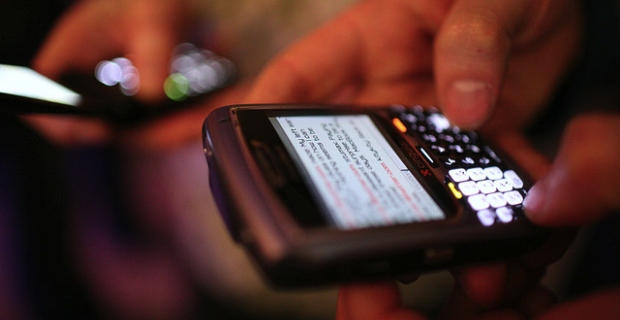

Remember when Research in Motion’s BlackBerry smartphones set the bar?
My first smartphone was a BlackBerry 7130e. I loved the phone. And then my son gave it a bath in a ginger ail. The 7130e had it all: A scroll wheel, Java apps, a keyboard and a swappable battery that would last for days. That phone came out in 2005 and I had mine until 2009.
Ironically, Research in Motion started to struggle around the same time my 7130e died. The company held onto its past too long, renamed itself after its flagship product, and you know the rest, pretty much drove itself into irrelevancy by fighting Android and clearly defined market data.
Until yesterday.
BlackBerry just revealed the KEYone. And look, it has a physical keyboard. In 2017. Why not?
There are some underlying differences between this device and classic BlackBerry devices. First, BlackBerry is not manufacturing this device. TCL is making this handset for BlackBerry. Second, the KEYone runs Android instead of an in-house operating system.
BlackBerry had previously stopped making devices and building OSs in a bid to return the company back to profitability. The idea was to license the brand’s name and build software solutions that run on Android. BlackBerry’s CEO John Chen described the move last year as a way to ensure the BlackBerry brand remains on a device.
The KEYone is the first device to be released under this new strategy. If only it had better branding. KEYone? I’m not a fan.
The idea is to serve a portion of small group of consumers interested in potentially owning a smartphone with a keyboard. The word potentially is key here. Because according to the people BlackBerry surveyed, they’re just potentially interested in owning such a device.
The KEYone’s hardware is novel in 2017. It features several past BlackBerry innovations with new trends. The keyboard can serve as a trackpad and there’s a fingerprint reader built into the spacebar. The keyboard trackpad isn’t new; the BlackBerry Passport released in 2014 first sported a touch-enabled keyboard.
The phone runs Android. BlackBerry had stopped using its BlackBerry OS several phones back. But those phones didn’t have a physical keyboard.
I guess there’s potentially still a set of consumers that want a physical keys and it’s only proper for BlackBerry to be the company to serve this market. If nothing else, it’s a way to set apart from the rest of the Android market which is filled with copy cats and devices that are nearly identical. In that respect, the move back to the good ol’ days is smart and a bit cute.
BlackBerry’s marketshare crashed from being the most dominant handset maker. Apple and Samsung took over the top spots. The market for the KEYone is not large enough for BlackBerry to ever regain its spot, but it might sell in enough numbers for BlackBerry to see a small bump. And since BlackBerry offloaded the manufacturing to TCL, it no longer shoulders as large of a liability if the device completely fails.
BlackBerry will never set the trends in smartphones. That day is long past. Now it’s a boring software company now that mostly stays out of the headlines. That’s healthy.

